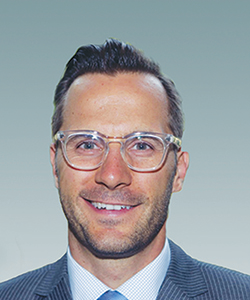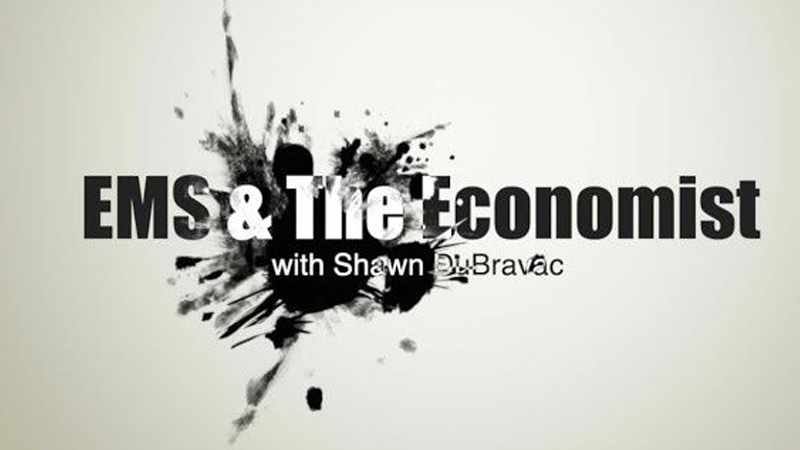 |
Dear [Colleague]:
This week’s bombshell was the order by a federal trade court to block the most sweeping of President Trump’s tariffs. The Trump administration immediately appealed to the Supreme Court, and no one expects the president to back down on his trade campaign. The upshot is fresh uncertainty for manufacturers already facing volatile trade conditions.
Also noteworthy: Colorado’s governor signed an executive order that aims to overhaul the state’s workforce development system, and it’s a model worth emulating in other states.
Keep reading for more details and stay tuned as we work to keep the momentum going.
Chris Mitchell
Vice President, Global Government Relations
The Headlines at a Glance:
TOP NEWS OF THE WEEK
- “Emergency” Tariffs Voided, Then Restored on Appeal
QUOTE OF THE WEEK
- Tariff Pressures Forcing Supply Chain Realignment
UNITED STATES
- Colorado Executive Order Advances Workforce Innovation
- IPC Applauds Pro-Electronics Pieces of “Big Beautiful Bill”
- IPC-Backed PCBS Act Reintroduced in U.S. House
EUROPE
- Netherlands Pushes Policies to Anchor EU Chip Supply Chain
MEXICO
- Mexico Navigates Electronics Tariffs and Certification Developments
- Industrial Investment in Mexican EV and Electronics Supply Chain
ASIA
- Tokyo Roundtable Spotlights Trade and Tech Innovation
- India Advances Electronics and Semiconductor Strategy
ENVIRONMENT AND SUSTAINABILITY
- New EU RoHS Project Launches with Six Exemptions Under Review
OTHER HEADLINES IN THE NEWS
- Yahoo! Finance | Trump threatens iPhone tariffs as he spotlights Apple’s supply chain
- U.S. News | Trump Tells US Chip Design Software Makers to Halt China Sales
UPCOMING EVENTS
- Omnibus Package on Sustainability Reporting - What Should the Electronics Industry Expect? Online, June 5
- EMS Advocacy Day & Public Policy Roundtable, Washington, D.C., June 11
HELP US SPREAD THE WORD ON SOCIAL MEDIA
KEEP IN TOUCH WITH US
 |
Emergency Tariffs Voided, Then Restored on Appeal: On Wednesday, the U.S. Court of International Trade (CIT) overturned the U.S. tariffs issued under the International Emergency Economic Powers Act (IEEPA), only to see an appellate court reinstate the tariffs within hours. The legal whiplash has added yet another layer of uncertainty for manufacturers already struggling to keep pace with frequent changes in tariff rates. As Politico reports, the CIT ruling, if upheld, could invalidate the February executive order issued under IEEPA, related to fentanyl and illegal immigration and targeting Canada, Mexico, and China; as well as the sweeping April “Liberation Day” executive order, which imposed 10% tariffs across the board. The federal government would be required to halt collection of those duties, and companies could potentially seek refunds under the terms of the judgment. The White House has appealed and may consider invoking alternate legal authorities to maintain its tariff agenda. IPC will continue to provide updates as the situation evolves. IPC Contact: Richard Cappetto.
 |
 |
— IPC Chief Economist Shawn DuBravac in a conversation with Philip Stoten on EMS and the Economist
 |
Colorado Executive Order Advances Workforce Innovation: Colorado Governor Jared Polis recently issued an executive order launching a strategy to overhaul the state’s workforce development system. According to an article in Work Shift, the plan aims to better align education and training with industry needs through stronger cross-sector collaboration, accelerated credentialing, and a unified vision for upskilling across the state. With a strong focus on industry-recognized credentials and regional training partnerships, Colorado’s model reflects many of IPC’s top workforce policy recommendations. As federal and state leaders consider workforce legislation and funding in 2025, IPC urges them to look to Colorado as a great example of policy innovation in action. IPC Contact: Richard Cappetto.
IPC Applauds Pro-Electronics Pieces of “Big Beautiful Bill”: The U.S. House last week passed a wide-ranging bill to deliver on President Trump’s domestic agenda, including several provisions endorsed by IPC. In a letter sent to House leaders one eve of the vote, IPC President and CEO John Mitchell said the “Big Beautiful Bill Act” will “strengthen our industry’s ability to invest, innovate, and remain competitive in today’s fast changing global economy.” Mitchell specifically praised tax provisions that would preserve the 21% corporate tax rate, restore 100% bonus depreciation, reinstate immediate R&D expensing and expand the Section 199A deduction for pass-throughs. IPC had called for those provisions and urged lawmakers to go further by adopting a tax credit for U.S.-made PCBs (as proposed in the PCBS Act) and the extension of Sections 48D and 45X to cover electronics components and assemblies. Mitchell also welcomed provisions that raised the Section 179 expensing cap from $1 million to $2.5 million; created a new 100% deduction for new or improved factory construction; and established a Workforce Pell Grant Program for high-quality, credentialed training. The Senate is expected to act on a companion measure in the coming weeks. Significant differences remain between House and Senate Republicans on many provisions. Stay tuned for IPC advocacy opportunities on this front. IPC Contact: Richard Cappetto.
IPC-Backed PCBS Act Reintroduced in U.S. House: A bipartisan pair of U.S. representatives has reintroduced the Protecting Circuit Boards and Substrates Act (PCBS Act), with strong support from IPC. The bill offered by Reps. Blake Moore (R-UT) and Raja Krishnamoorthi (D-IL) would establish a 25% tax credit for the purchase of U.S.-made printed circuit boards (PCBs) and authorize $3 billion to invest in domestic PCB and IC substrate production. In a statement, IPC President and CEO John Mitchell said, “This bill is a vital step toward rebuilding the nation’s ability to manufacture electronics from silicon to systems—an essential foundation for innovation, security, and economic strength.” With the U.S. being highly reliant on overseas sources for PCBs and substrates, this legislation is aimed at reshoring capacity and securing the technological foundation for everything from fighter jets to medical devices. Stay tuned for advocacy opportunities on this bill. IPC Contact: Richard Cappetto.
 |
Netherlands Pushes Policies to Anchor EU Chip Supply Chain: In a recent interview with CNBC, Dutch Minister of Economic Affairs Dirk Beljaarts said Europe is working to build “strategic autonomy” in semiconductors, as the continent’s chips coalition is growing from nine to 15 nations. Dutch officials are urging the European Union to act more cohesively in implementing the €43 billion EU Chips Act, emphasizing that Europe must move beyond national silos to build a resilient, end-to-end semiconductor supply chain. As home to ASML, a global leader in chipmaking equipment, the Netherlands is also encouraging expanded cooperation with key countries in Asia, including Japan and South Korea, to bolster supply chain security and technology exchange. IPC continues to support a full value chain approach to semiconductor policy that includes design, packaging, and materials, alongside strong global partnerships. IPC Contact: Alison James.
 |
Mexico Navigates Electronics Tariffs and Certification Developments: Mexico’s electronics sector continues to evolve amid shifting global trade conditions. According to NAPS International, newly imposed U.S. tariffs on select imports have introduced additional cost pressures for manufacturers, prompting some companies to revisit sourcing strategies and cost structures across North America. At the same time, firms are expanding their operational capabilities. I-Connect007 reports that Federal Electronics has received AS9100 certification for its Hermosillo, Sonora facility, strengthening its position in aerospace and defense electronics manufacturing. While rising wages and operational costs are narrowing the gap between Mexico and Asian competitors, Mexico remains a factor in many regional supply chain strategies due to its location, labor base, and trade alignment. IPC Contact: Lorena Villanueva.
Industrial Investment in Mexican EV and Electronics Supply Chains: Mexico’s electronics and electric mobility sectors continue to attract investment activity across several regions. According to Mexico Industry, Chinese firm Yadea has opened a $78.6 million electric motorcycle plant in Ocoyoacac, with annual production capacity of 30,000 units. In Guanajuato, state officials announced over 3,600 hectares available for industrial development across 47 parks, targeting electronics, automotive, and IT sectors (Mexico Industry). A separate Mexico Industry report notes that more than 20 South Korean companies are currently evaluating high-tech expansion opportunities in Mexico, following recent trade outreach by the country’s Deputy Minister of Foreign Trade. Meanwhile, Mexico’s automotive wire harness industry—vital to EV and electronics production—is expanding in hubs like Ciudad Juárez and Guanajuato, though only 3.2% of materials are sourced locally. According to Expo Wiretech, over 90,000 workers have been trained by INADET, with 20% focused on electronics roles. IPC continues to monitor these trends and their implications for supply chain localization, workforce readiness, and regional competitiveness. IPC Contact: Lorena Villanueva.
 |
Tokyo Roundtable Spotlights Trade and Tech Innovation: IPC hosted its 2025 Q2 Executive Policy Roundtable last week at Tokyo Kaikan, convening senior government officials, corporate leaders, and policy experts for a high-level dialogue on the future of global electronics supply chains. The event focused on cultivating U.S.–Japan cooperation in semiconductors and advanced technology; leveraging advanced electronics packaging (AEP); and expanding international collaboration beyond traditional industrial boundaries. Speakers included former LDP Secretary General Akira Amari; IPC President and CEO John Mitchell; IPC VP of Global Government Affairs Chris Mitchell and IPC Chief Technology Officer Matt Kelly. Discussions emphasized Japan’s strengths in materials and manufacturing equipment, and the need to reinforce global value chains through innovation and strategic partnerships. The Tokyo roundtable marked the second event in IPC’s quarterly executive series in Japan. IPC Contact: Yusaku Kono.
India Advances Electronics and Semiconductor Strategy: India is ramping up efforts to strengthen its position in the global electronics and semiconductor landscape. According to Business Standard, the government recently approved key proposals under its Semiconductor Mission in Uttar Pradesh, including projects involving HCL and Foxconn, aimed at boosting domestic chip capacity. In parallel, officials confirmed that the first group of eligible applicants under the Production-Linked Incentive (PLI) scheme for electronic components may be announced within the next month. India has also articulated a national goal of capturing 5% of the global semiconductor market by 2030, a target supported by new investments, government incentives, and a long-term push to move up the electronics value chain. As noted in a recent Business Standard report, the Semicon India program is entering its next phase, with an emphasis on manufacturing, design, and packaging. IPC Chief Economist Shawn DuBravac highlighted this momentum in a recent LinkedIn post, noting how India has evolved from a hub for call centers to an increasingly competitive player in advanced electronics. IPC Contact: Gaurab Majumdar.
 |
New EU RoHS Project Launches with Six Exemptions Under Review: The Oeko-Institut, a nonprofit Germany-based research institute, recently launched “RoHS Pack 28,” a new project on behalf of the European Commission to evaluate five renewal requests and one exemption revocation under the Restriction of Hazardous Substances (RoHS) Directive. The exemptions under review include uses of mercury in lamps, sensors, and medical devices, as well as lead in explosive initiators and ultrasonic transducers. Companies affected by these exemptions are strongly encouraged to engage early, as RoHS decisions can significantly impact product design, market access, and supply chain continuity. IPC continues to monitor RoHS developments and engage with regulators to ensure a balanced approach that supports innovation and environmental responsibility. IPC Contact: Diana Radovan.
 |
Omnibus Package on Sustainability Reporting - What Should the Electronics Industry Expect?
Online, June 5: IPC, Anthesis Group, and Incap Corp. are convening a webinar to discuss the European Commission’s proposed “Omnibus” package, which is intended to simplify EU sustainability reporting rules related to the EU Green Deal. Learn more and register here.
EMS Advocacy Day & Public Policy Roundtable, Washington, D.C., June 11: If you’re aiming to become a leader in EMS, join your peers to discuss and advocate on the industry's most pressing challenges and opportunities. Attendees will hear from congressional staff and agency officials, share their perspectives on key issues, and help shape IPC’s advocacy strategy moving forward. Space is limited, so early registration is encouraged. Learn more and register here.
 |
 |
 IPC President and CEO, John W. Mitchell shares about Colorado’s new executive order |
KEEP IN TOUCH & JOIN OUR EFFORTS Meet the IPC GR Team: Whether it is engaging with policymakers in the Americas, the European Union, or Asia, the IPC Government Relations (GR) Team proactively seeks opportunities to educate, inform and influence policymakers on policies that spur innovation, growth and competition, while protecting human health and the environment. But our success depends on your support and engagement. Learn more and get involved in IPC advocacy today! IPC Contact: Chris Mitchell.
In the U.S., take IPC’s five-minute public opinion survey and contact your elected officials via the IPC Action Alert Center. Peruse our global Advocacy pages on IPC.org or our European pages on IPC.org and LinkedIn. Subscribe to this IPC Global Advocacy Report: If you are a member of IPC, manage your e-mail preferences and opt in to receive all “Advocacy” updates. If you are not an IPC member — or if you are not sure — please send a note to friends@ipc.org, and our staff will add you to the list. See prior editions of Global Advocacy Report. Please contact one of us via the links above if you have any questions or insights to share!
|


